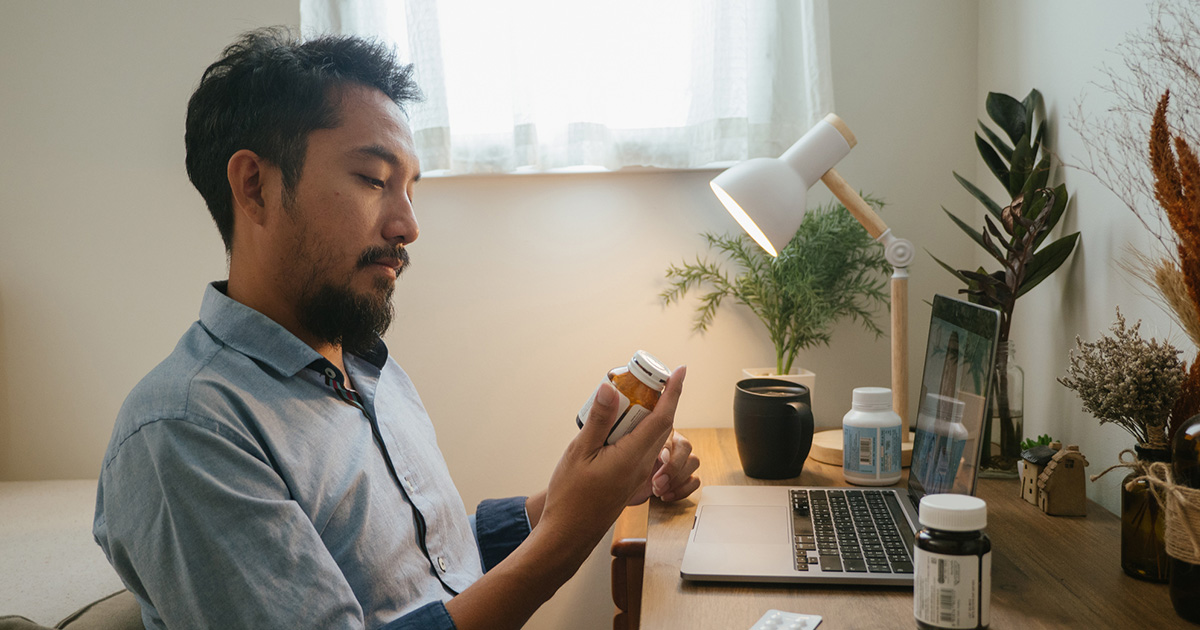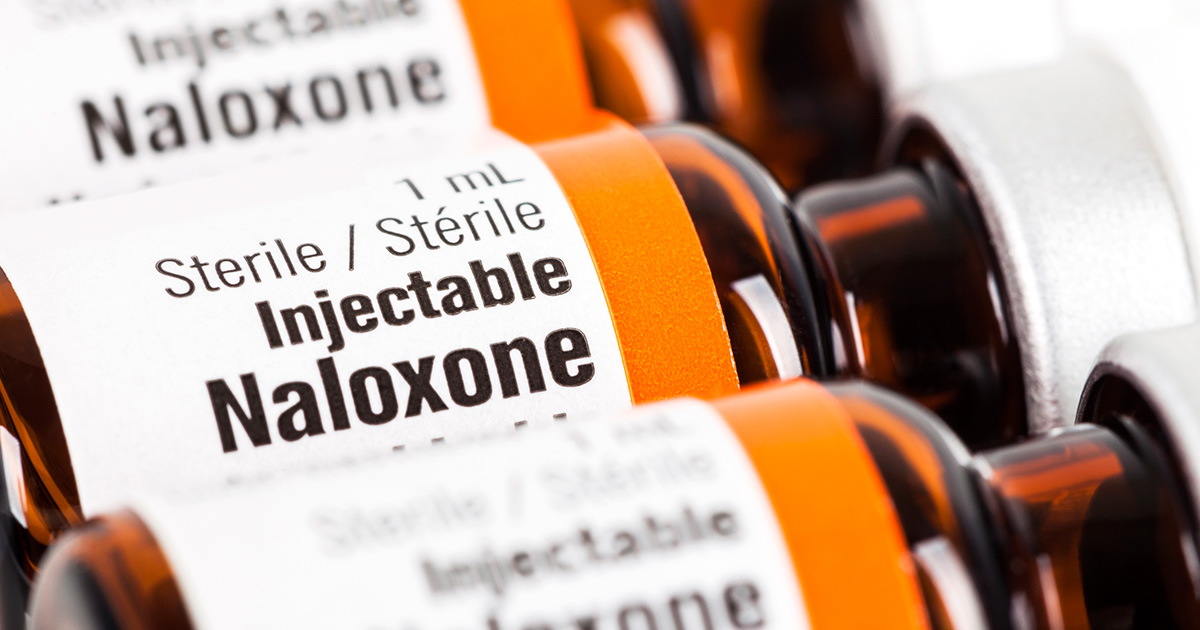
Prescription drug misuse is a major concern on the rise in the United States. Just like illicit drug use, prescription drug misuse can damage lives beyond repair. In fact, since 1993, prescription drug overdose mortalities have experienced a general increase, peaking in 2007 with 40 deaths per 100,000 people.[1]Paulozzi, L. J. (2012, September). Prescription drug overdoses: A review. Journal of Safety Research, 43(4), 283-289. https://www.sciencedirect.com/science/article/abs/pii/S0022437512000540
However, the unfortunate circumstance is that drug overdose is rarely viewed as a public health issue, but instead as a law enforcement issue. However, with more and more drug overdoses linked to prescription drugs, including psychotherapeutic drugs and opioid analgesics, prescription addiction, misuse, and overdose are quickly becoming a public crisis.
As more Americans are prescribed pharmaceuticals, ready access to these drugs has increased as well. In particular, Pregabalin, a prescription-only drug also known as Lyrica, is experiencing an alarming increase in misuse and overdose cases. Pregabalin has shown a significant potential for clinical abuse.[2]Schjerning, O., Rosenzweig, M., Pottegård, A. et al. (2016) Abuse Potential of Pregabalin. CNS Drugs 30, 9–25 (2016). https://doi.org/10.1007/s40263-015-0303-6
What Is Lyrica Used For?

First, it’s important to understand what Pregabalin is and what it is used for. As mentioned, the most common brand name for Pregabalin is Lyrica. Lyrica is a drug used to treat fibromyalgia and epilepsy. It also has shown some promise for treating anxiety, but further research needs to be done to fully understand this.
Fibromyalgia itself is a difficult illness. With symptoms such as musculoskeletal pain, sleep issues, fatigue, mood and memory issues, fibromyalgia can be debilitating. Lyrica is approved to treat these issues, as well as treat the symptoms of seizures, nerve pain, and spinal cord injuries.
Lyrica itself isn’t an antidepressant. Instead, it focuses on addressing the nerve signals within the brain and central nervous system. Lyrica works to decrease the number of nerve signals, alleviating the pain caused by excessively sensitive or overactive nerve cells. This is the mechanism by which Lyrical addresses fibromyalgia pain.
This mechanism is very similar to the effects encountered by patients using gabapentin, with a few key exceptions. Gabapentin is absorbed more slowly by the body and is less potent than Pregabalin. However, Pregabalin also has shown fewer side effects than Gabapentin and research has demonstrated that it is more effective at treating neuropathic pain than Gabapentin.[3]Morgenson, D., (2015). How Gabapentin Differs from Pregabalin. Pharmacy Times. Retrieved March 28, 2022, from https://www.pharmacytimes.com/view/how-gabapentin-differs-from-Pregabalin
Misuse of Lyrica
Unfortunately, the way Pregabalin mitigates nerve signaling means that its effects are desirable for many prescribed and recreational users. Recreational use of Pregabalin promotes feelings of euphoria with pleasant drowsiness. The real trouble is that those using Pregabalin recreationally are unaware of the side effects and potential negative drug interactions. They may also become dependent on the way Pregabalin makes them feel, need more and more Lyrica to achieve the same sensation, and become at risk for overdose.
Recreational users may also be unaware of the potential side effects Lyrica can cause, and how it can interact with other medications. Those who take Lyrica as prescribed by their physician should also take care to review the potential side effects of the drug.
Adverse side effects [4]Toth C. (2014). Pregabalin: latest safety evidence and clinical implications for the management of neuropathic pain. Therapeutic advances in drug safety, 5(1), 38–56. … Continue reading can include:
- Dry mouth
- Dizziness
- Speech problems
- Vomiting
- Weakness
- Sedation
- Peripheral edema
- Weight gain
- Increased appetite
- Constipation
- Infection
Some serious side effects to be concerned about include:
- Blurred vision and changes in eyesight
- Itching
- Rash
- Hives
- Swelling of the eyes, face, throat, mouth, lips, gums, tongue, head, or neck
- Blisters
- Shortness of breath
- Wheezing
- Chest pain and difficulty breathing
- Bluish-tinged skin, lips, or fingernails
- Confusion
- Extreme sleepiness
- Depression
Depression is an especially serious concern for those who may take Lyrica. Those who have a history of depression and negative thinking patterns are at an increased risk of depression from Lyrica usage, and an increased risk of suicidal ideation as well. Lyrica has been linked to both suicide attempts and successful instances of suicide.[5]Hall, T., Shah, S., Ng, B., Feberwee, H.-M., Dotchin, L., Vandermost, M., & King, M. A. (2014). Changes in mood, depression, and suicidal ideation after commencing Pregabalin for neuropathic … Continue reading
Lyrica Overdose Symptoms
Lyrica has been marketed as an alternative to opioid medications, but that doesn’t mean Lyrica has zero dependency and overdose risk. There are both mental and physical symptoms that occur when someone is overdosing from Lyrica, and the risk for an overdose is increased when mixing Lyrica with other drugs.
The recommended maximum dosage for Lyrica is no more than 600 milligrams per day. Taking more than this can lead to lethal outcomes. The following are signs of a Lyrica overdose:
- Tremors, an uncontrollable, rhythmic movement of a part of the body
- Mood swings or changes
- Excessive sweating
- Mental confusion, changes in awareness, or delirium
- Agitation
- Feelings of fatigue, drowsiness, and tiredness
- Depression
- Restlessness
- Irregular heart rate and blood pressure
- Possible loss of consciousness
- Difficulty breathing
How Is a Lyrica Overdose Treated?

It is crucial to know how a Lyrica overdose should be treated. Typically, it is treated in the same way as other non-opioid prescription overdoses. Patients suffering from a Lyrica overdose will likely have their stomach pumped in the hospital. They may be given medication to help alleviate high blood pressure and heart rate, and have their fluids replaced.
If there are opioids present in the patient’s system, the situation is addressed with a greater sense of urgency. Naloxone is often administered in the event of an opioid overdose. However, this does not reverse a non-opioid overdose.
Pregabalin and Opioids
As mentioned, any time someone mixes another medication with opioids, there are additional concerns regarding potential adverse interactions. Pregabalin interacts poorly with several opioids, including Fentanyl, Hydrocodone, and Morphine.
Pregabalin is significantly more lethal when mixed with opioids. Several opioids themselves, including fentanyl, are lethal on their own. Pregabalin and opioids are sometimes mixed to achieve an enhanced feeling of euphoria. For those who are opioid dependent, Pregabalin is very often a part of the preferred drug cocktail. For that reason, a high number of Pregabalin and opioid deaths are associated with the mixing of the two.[6]Jokinen, V., Lilius, T.O., Laitila, J., Niemi, M., Rauhala, P.V., & Kalso, E.A. (2016). Pregabalin enhances the antinociceptive effect of oxycodone and morphine in thermal models of nociception … Continue reading
Aside from overdose and death, Pregabalin and opioids can cause other undesirable side effects. Vomiting may be a side effect of Pregabalin and opioid use, and the danger of possible suffocation while unconscious is a serious related concern. If a person is unconscious long enough after taking both Pregabalin and opioids, permanent brain damage may occur.
Pregabalin and Alcohol
Some people that misuse Pregabalin will take it with alcohol. Because both substances cause feelings of sedation and dizziness, adding them together intensifies the feelings. Feelings of drowsiness and concentration issues will increase sharply.
Furthermore, combining alcohol and Pregabalin may slow down the central nervous system. What this means is that breathing and heart rate will be slowed, which can quickly become a problem. Alcohol is classified as a depressant, so it also slows down the central nervous system. If that effect is amplified with Pregabalin, the results could end up being fatal.
Some of the other side effects of combining alcohol and Pregabalin include itching, hives, reduced alertness, swelling of the throat, lips, and tongue, and breathing issues. Lyrica and alcohol related death is a growing concern for public health.
The “high” effects experienced while combining alcohol and Pregabalin can quickly become addictive.
Recreational Lyrica Use
As with any substance that produces and amplifies feelings of euphoria, Lyrica sees serious recreational use. A 2013 study done in the UK demonstrated increases in recreational usage of Lyrica, especially in Belfast. Because of its similar effects to drunkenness, Lyrica’s street name in that region of the world is “Budweisers.”
Researchers studied ten patients who had been abusing Lyrica. Six of these patients presented with Pregabalin overdose seizures, two of these patients were eventually intubated, and another patient was discharged against medical advice.[7]Millar, J., Sadasivan, S., Weatherup, N., et al. (2013). Lyrica nights—Recreational Pregabalin abuse in an urban emergency department. Emergency Medicine Journal 30, 874. … Continue reading A notable finding indicated that for five of the six patients that experienced seizures, Lyrica use was associated with their first instance of seizure.
Signs and Symptoms of Lyrica Addiction
11.7% of Americans 12 and older use illegal drugs. A total of 19.4% of Americans 12 and older have either used illegal drugs or abused prescription drugs in the last year. That means 31.9 million Americans currently use illegal substances or misuse prescription medications.[8]NCDAS (2022). Substance Abuse and Addiction Statistics. Drug Abuse Statistics. Retrieved March 28, 2022, from https://drugabusestatistics.org/ By now, it is clear that addiction is an epidemic. Unfortunately, because drug use is so stigmatized, seeking help can be difficult for those who need it.
Those who are suffering from Lyrica addiction issues show both emotional and physical symptoms. Lyrica itself is not an extremely addictive drug when used as prescribed, but the feelings of extreme euphoria and the intensifying effects of Lyrica when combined with other substances can certainly lead users to chase that feeling again and again.
Some symptoms of addiction to Lyrica include:
- Gaining a tolerance to the substance and requiring more to obtain the desired effect.
- Continuing to take a drug after it is no longer needed.
- Feeling abnormal when the drug wears off, including symptoms of depression, shakiness, nausea, sweats, and frequent headache.
- Inability to stop use, even though you may want to stop, and even though it may be causing negative effects in your life and relationships.
- Constantly thinking about the drug, such as figuring out ways you can acquire it, when you can use it, and how it will make you feel.
- Difficulty setting limits on your usage—although you tell yourself you’ll only use so much, you frequently cross your own boundaries.
- Losing interest in things you once loved.
- Having a hard time completing normal tasks in your routine.
- Stealing or borrowing money to acquire the substance.
- Experiencing significant change in your personality and mood, which can lead to difficulty in your relationships.
- Losing interest in relationships that were once important to you.
- Shifting sleeping and eating habits, including getting more sleep or less sleep than is normal for you, and eating more or less than you typically do.
- Changes in your appearance, including spending less time on your basic hygiene.
- Visiting different doctors for new prescriptions or lying to doctors for new prescriptions.
- Stealing drugs from someone else.
- Combining drugs and alcohol.
- Hiding or hoarding your pills and trying to cover up how much you are using.
- Experiencing new or worsening depression.
- Feeling anxious.
- Experiencing memory issues, feeling excessively tired or drowsy, and having heart palpitations.
These are signs and symptoms of not just Lyrica addiction issues, but addiction. However, it is important to note that not all addictions come from recreational use. Addiction to Lyrica is often something that happens by accident, as those prescribed Lyrica for fibromyalgia, epilepsy, and anxiety may choose to use it until they become reliant on it to function. Stopping use of Lyrica can lead to withdrawal, including symptoms of emotional instability, racing heart, and vomiting. Without medical attention and a gradual taper, withdrawal from Lyrica can be dangerous and lethal itself.
Learn More About Treatment Options

Lyrica is a prescription-only medicine that is used to treat epilepsy, fibromyalgia, and other kinds of neuropathic pain, or pain linked to the nervous system.[9]Verma, V., Singh, N., & Singh Jaggi, A. (2014). Pregabalin in neuropathic pain: evidences and possible mechanisms. Current Neuropharmacology, 12(1), 44–56. … Continue reading It is an important drug that helps those with these conditions lead a more comfortable life. However, because of Lyrica’s ability to amplify the effects of illicit substances and alcohol, it is often abused.
*Editor’s Note: This article was originally published Jan 11, 2019 and has been updated April 15, 2022.








